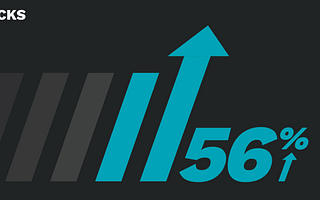Rhett Rowe is a seasoned expert in cybersecurity, boasting over 15 years of professional experience in the industry. He has collaborated with numerous Fortune 500 companies, aiding them in fortifying their digital infrastructures. Rhett is a Certified Ethical Hacker (CEH) and has earned his Master's degree in Information Security from Stanford University.
Hey there! I'm Ethan Cipher, your go-to cybersecurity expert here at HackerDesk. Today, I'll be shedding some light on the different types of cybersecurity threats that you should be aware of in our ever-evolving digital world.
When it comes to cybersecurity, it's crucial to understand the various threats that can put your digital assets at risk. By being aware of these threats, you can take proactive measures to protect yourself and your organization. So, let's dive in!
1. Malware: Malware, short for malicious software, is a broad term that encompasses various types of harmful software such as viruses, worms, Trojans, ransomware, and spyware. These malicious programs can infect your devices, steal sensitive information, and even hold your data hostage.
2. Phishing: Phishing attacks involve tricking individuals into revealing sensitive information, such as passwords or credit card details, by posing as a trustworthy entity. These attacks usually occur through deceptive emails, messages, or websites that mimic legitimate organizations.
3. Social Engineering: Social engineering is a tactic used by cybercriminals to manipulate individuals into divulging confidential information or performing actions that may compromise security. This can include impersonating a colleague, manipulating emotions, or exploiting trust to gain unauthorized access.
4. DDoS Attacks: Distributed Denial of Service (DDoS) attacks aim to overwhelm a network, server, or website with an excessive amount of traffic, rendering it inaccessible to legitimate users. These attacks can disrupt services, cause financial losses, and damage a company's reputation.
5. Insider Threats: Insider threats refer to risks posed by individuals within an organization who have authorized access to sensitive data. These threats can be intentional, such as disgruntled employees seeking revenge, or unintentional, such as employees falling victim to social engineering tactics.
6. Advanced Persistent Threats (APTs): APTs are sophisticated and targeted attacks that are typically carried out by well-funded and highly skilled adversaries. These threats involve a prolonged and stealthy infiltration of a network, aiming to gain unauthorized access and extract valuable information.
7. Zero-Day Exploits: Zero-day exploits target vulnerabilities in software that are unknown to the vendor or have not yet been patched. Cybercriminals exploit these vulnerabilities to gain unauthorized access, steal data, or launch other malicious activities.
Now that you're familiar with some of the common cybersecurity threats, it's essential to stay updated on the latest security updates, regularly patch your software, and implement robust security measures. Additionally, conducting penetration testing can help identify vulnerabilities in your network and systems, allowing you to proactively secure against potential threats.
Remember, cybersecurity is an ongoing process, and staying vigilant is key to protecting yourself and your organization in the digital world. If you have any further questions or need assistance, feel free to reach out. Stay secure!















